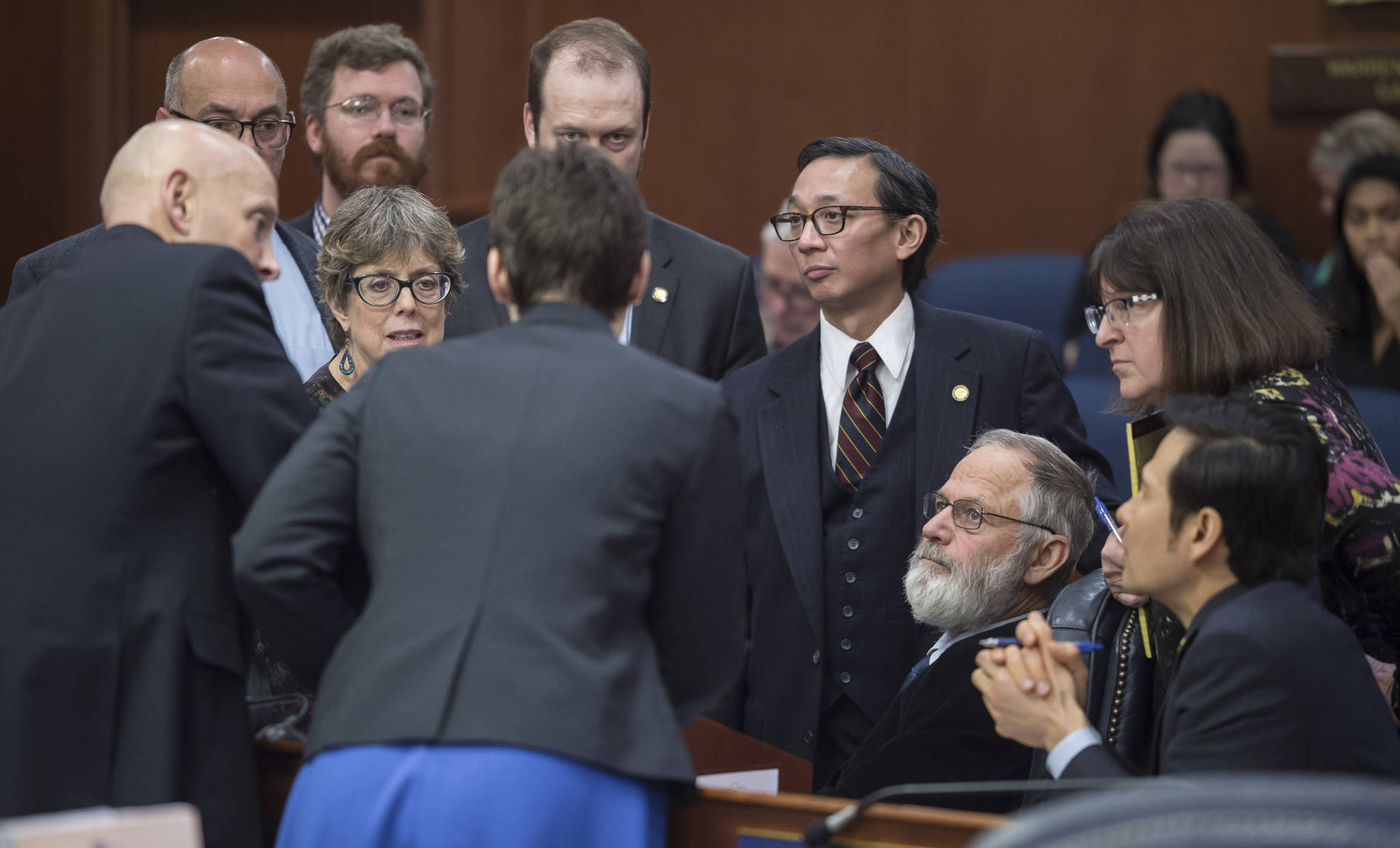Correction: The original version of this article incorrectly stated that the House and Senate have different rules on overriding a conflict of interest and forcing a member to vote. House Concurrent Resolution 1 received 21 votes, less than the two-thirds majority required to change House rules.
Alaska lawmakers passed a tougher ethics law than they thought.
In a meeting Thursday afternoon, the Legislature’s select committee on legislative ethics approved a legal opinion that says a new conflict-of-interest law covers discussions behind closed doors, not just public debate.
The vote was 8-1, with Rep. Lora Reinbold, R-Eagle River, in opposition.
“I just think this is going to put the entire legislative body in knots,” Reinbold said.
This spring, lawmakers voted 24-15 in the House and 13-6 in the Senate to approve House Bill 44 from Rep. Jason Grenn, I-Anchorage. The bill requires lawmakers to declare if they or their families are financially affected by legislation under discussion. The conflict has to be worth at least $10,000.
That conflict must be revealed in committee discussions, and if the legislation comes to the floor of the House or Senate, the lawmaker has to declare a conflict there and request to be excused from voting.
Their fellow lawmakers can force them to vote anyway — the objection of only one lawmaker is needed to force them to vote.
In January, the Legislature will operate under these new rules for the first time, and the ethics committee had some questions for legislative lawyers about how to implement them.
As attorney Megan Wallace said, the new restrictions apply beyond committee hearings: They cover even the closed-door discussions of the majority and minority caucuses in the House and Senate.
“Accordingly, if the caucus meeting is a … ‘private informal meeting to discuss and deliberate on political strategy,’ … the legislator will be prohibited from exerting ‘official influence or advocating for the bill in the caucus meeting,” Wallace wrote in a memo explaining the law’s application.
Reinbold asked Wallace several hypothetical situations, attempting to discern what might constitute a conflict of interest and what might not. Reinbold’s spouse is a ConocoPhillips employee, and under a strict interpretation of the law, she might be required to declare a conflict of interest if the Legislature were discussing changes to the state’s oil tax.
Under a broader application of the law, all legislators could be subject to disclosure requirements, given that they receive Permanent Fund Dividends and benefit from state services funded by oil taxes.
Wallace said determining conflicts must be done on a case-by-case basis, based on the individual and the particular bill.
“You only know from looking at the bill itself … whether that test is met,” she said.
“My recommendation would be that if a legislator or someone else has these issues presented, then they should give the office a call and have a more specific discussion,” she added later in the meeting.
Reinbold said she finds the matter “incredibly troubling” and that it could violate the First Amendment rights of lawmakers.
Joyce Anderson, a public member of the ethics committee, identified a loophole in the legislation: Lawmakers do not have to declare a conflict of interest if they testify in front of a committee, only if they are a member of a committee.
Members of the committee said they cannot change the new law on their own. They can only interpret its language. Any changes would be up to lawmakers themselves, once the session begins in January.
Wallace said the consequences of violating the law are likely to be limited.
“Failure isn’t going to stop … legislation from moving forward,” she said. “From a legal perspective, a violation of the ethics act won’t render the legislation itself invalid.”
• Contact reporter James Brooks at jbrooks@juneauempire.com or 523-2258.

